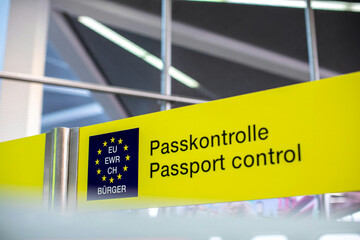The “best efforts” obligation in EU sanctions practice: what does it mean and who must comply?
- Who is obliged to comply?
- What does the “best efforts” concept mean?
- How can EU residents protect themselves?
- Contact our lawyer for more details
Since June 2024, under the 14th package of sanctions against Russia, which also affected Belarus, EU residents owning or controlling companies outside the EU are required to make their best efforts (“best efforts”) to prevent the circumvention and violation of sanctions regimes through their non-European entities. Subsequently, the European Commission issued clarifications on the substance of this obligation.
In this article, REVERA law group lawyers analyse in detail the key aspects of the “best efforts” concept and its practical application.
Who is obliged to comply?
The “best efforts” obligation applies not only to EU residents, but also to all non-European legal entities owned or controlled by an EU operator (non-European subsidiaries).
The preamble to the sanctioning regulations introducing the “best efforts” obligation states:
- Ownership means holding 50% or more of the proprietary rights of a legal entity, organisation or structure, or having a majority interest therein;
- Control is defined by a number of criteria, including the right to appoint the majority of the members of the administrative, management or supervisory body; the right to use all or part of the assets; business management with publication of consolidated accounts; the right to exercise a dominant influence over the legal entity, etc.
Accordingly, the “best efforts” obligation also applies to persons outside the EU owned or controlled by an EU resident (e.g. located in Russia, Belarus, Kazakhstan, etc.). For example, if an IT or pharmaceutical company registered in Belarus or Russia is owned or controlled by an EU resident, the “best efforts” obligation will apply to it.
The duty to make “best efforts” covers only those actions that are “feasible” for EU operators, and should not extend to non-European entities over which EU operators lack control due to reasons beyond their control (for example, the legislation of third countries).
What does the “best efforts” concept mean?
The concept of “best efforts” refers to actions that are appropriate and necessary to prevent the circumvention of already imposed restrictive measures, provided such actions are “feasible”. This must be assessed on a case-by-case basis, taking into account (i) the nature, (ii) the size and (iii) the relevant factual circumstances of each EU resident.
At the same time, what exactly constitutes “best efforts” for a particular company or other entity depends on the specific situation. In assessing whether such efforts have been made, and to what extent, the competent authorities will closely examine the activities of your company and its affiliated legal entity in a third country, including their scale, industry and nature of business. As with other elements of a sanctions compliance programme, actions must be proportionate to the level of sanctions risk. The higher the risk or the larger the business, the greater the efforts expected.
Situations may arise in which an EU operator loses control over a foreign business, or such business, under its national legislation, is unable to comply with EU sanctions. This may occur, for example, where a state subject to EU sanctions introduces counter-measures intended to neutralise the effect of sanctions on its territory. In its clarifications (FAQ), the Commission also stressed that if loss of control over an affiliated structure resulted from the EU operator’s own fault (even if this occurred before the imposition of sanctions), such operator may still be held liable for non-compliance with the “best efforts” obligation.
How can EU residents protect themselves?
- Clearly determine whether the “best efforts” obligation applies to your business, in particular to non-European legal entities. To this end, conduct a comprehensive risk assessment, covering all entities in which you have an ownership interest or exercise control.
- Implement an internal sanctions compliance policy covering subsidiaries outside the EU. Such a programme should include:
- training and awareness-raising within the corporate group;
- implementation of internal control mechanisms, including procedures enabling management to respond promptly to breaches of the sanctions regime by non-European subsidiaries.
The policies and programmes introduced must be proportionate to the nature and scale of the EU operator’s activities — taking into account the sector, sanctions risk level, turnover, staff size and other circumstances.
In the context of potential liability, the European Commission clarifies that an EU operator may be held liable for failure to make “best efforts” in the following cases:
- Awareness of activities: the EU operator knows that its non-European subsidiary is engaged in activities undermining EU sanctions and allows such activities to continue.
- Failure to block transactions: the EU operator does not take necessary and feasible steps to prevent circumvention of EU sanctions by non-European subsidiaries.
- Failure to carry out due diligence of non-European subsidiaries’ activities: EU operators cannot rely on a “no-liability clause” if they have not ensured oversight and awareness of their non-European subsidiaries’ activities.
If the “best efforts” concept may apply to your business, regardless of its location, REVERA lawyers are ready to assist you with:
- conducting due diligence of your foreign and affiliated companies regarding the applicability of relevant sanctions obligations;
- developing and implementing internal sanctions compliance mechanisms and programmes consistent with EU law and proportionate to the nature, scale and risks of your activity.
According to the legislation of the Republic of Belarus, restrictive measures (sanctions) of third countries have no legal effect within the territory of Belarus. This information may be useful when assessing arguments of foreign partners as to the existence or absence of restrictions on their side.
Author: Aliaksei Fedarovich
Contact our lawyer for more details
Write to lawyerAttention Journalists: Use of REVERA website materials in publications is only allowed with our written permission.


